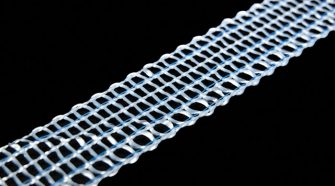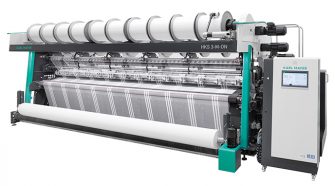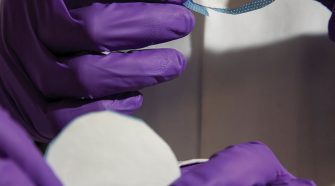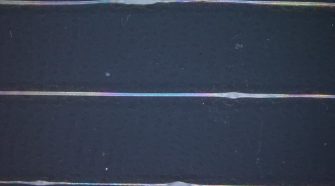
Bally Ribbon Mills announces E-WEBBINGS product base for smart textiles
Bally Ribbon Mills (BRM), a designer, developer and manufacturer of specialized engineered woven fabrics, announced its proprietary E-WEBBINGS e-textile product base. Specifically designed to serve as a customizable base for …

Lenzing adopts blockchain to ensure traceability and transparency in TENCEL-branded fibers
The Lenzing Group will use blockchain technology to support its TENCEL-branded fiber business, ensuring complete transparency and traceability for brands and consumers of its fibers in the finished garment. After …

KARL MAYER introduces cloud-based HKS system, touts efficiency improvements
KARL MAYER launched its new HKS 3-M-ON at ITMA 2019. Dubbed as the first three-bar HKS machine with electronic guide bar control, HKS 3-M-ON is linked to KARL MAYER’s digital …

Nanofiber webs enable the efficient removal of toxic dyes from wastewater
A team of Texas Tech University researchers working in advanced textiles has found a new way to remove toxic dye pollutants from wastewater, and their approach is safer, cheaper and …

Improving the elastomeric performance of bio-based fibers
By C. Burgstaller and B.M. Lekube, Transfercenter für Kunststofftechnik, Wels, Austria, and S. Riepler and W. Hermann, IFG Asota, Linz, Austria
In this work, we investigated the suitability of a bio-based elastomer to modify polylactic acid (PLA) towards more elasticity, in combination with a reactive coupling agent. We found that this is possible in general, but the processing of the materials has to be carried out with care so as not to locally cross-link the materials, which would result in a reduction of properties.

